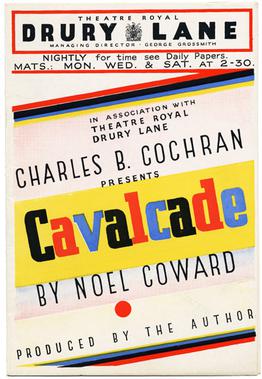
Cavalcade is a play by Noël Coward with songs by Coward and others. It focuses on three decades in the life of the Marryots, an upper-middle-class British family, and their servants, beginning in 1900 and ending in 1930, a year before the premiere. It is set against major historical events of the period, including the Relief of Mafeking; the death of Queen Victoria; the sinking of the RMS Titanic; and the First World War. The popular songs at the time of each event were interwoven into the score.

Jessie Margaret Matthews was an English actress, dancer and singer of the 1920s and 1930s, whose career continued into the post-war period.
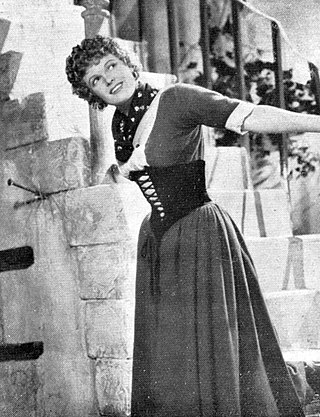
Dame Florence Marjorie Wilcox, known professionally as Anna Neagle, was an English stage and film actress, singer, and dancer.

Susan Hampshire, Lady Kulukundis, is an English actress known for her many television and film roles. She is a three-time Emmy Award winner, winning for The Forsyte Saga in 1970, The First Churchills in 1969, and for Vanity Fair in 1973. Her other television credits include The Pallisers (1974), The Grand (1997–98) and Monarch of the Glen (2000–2005).

Bitter Sweet is an operetta in three acts, with book, music and lyrics by Noël Coward. The story, set in 19th-century and early 20th-century England and Austria-Hungary, centres on a young woman's elopement with her music teacher. The songs from the score include "The Call of Life", "If You Could Only Come with Me", "I'll See You Again", "Dear Little Café", "If Love Were All", "Ladies of the Town", "Tokay", "Zigeuner" and "Green Carnation".
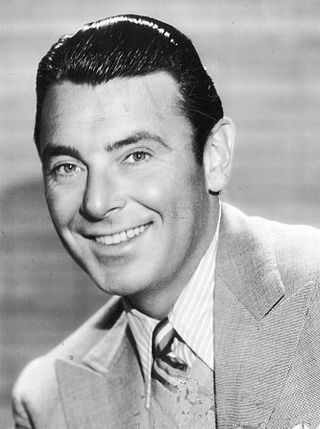
George Brent was an Irish-American stage, film, and television actor. He is best remembered for the eleven films he made with Bette Davis, which included Jezebel and Dark Victory.

Walter John Buchanan was a Scottish theatre and film actor, singer, dancer, producer and director. He was known for three decades as the embodiment of the debonair man-about-town in the tradition of George Grossmith Jr., and was described by The Times as "the last of the knuts." He is best known in America for his role in the classic Hollywood musical The Band Wagon in 1953.

Evelyn Laye was an English actress and singer.

Kathleen Harrison was a prolific English character actress best remembered for her role as Mrs. Huggett in a trio of British post-war comedies about a working-class family's misadventures, The Huggetts. She later played the charwoman Mrs. Dilber opposite Alastair Sim in the 1951 film Scrooge and a Cockney charwoman who inherits a fortune in the television series Mrs Thursday (1966–67).

Henry Byron Warner was an English film and theatre actor. He was popular during the silent era and played Jesus Christ in The King of Kings. In later years, he successfully moved into supporting roles and appeared in numerous films directed by Frank Capra. Warner's most recognizable role to modern audiences is Mr. Gower in It's a Wonderful Life, directed by Capra. He appeared in the original 1937 version of Lost Horizon as Chang, for which he was nominated for the Academy Award for Best Supporting Actor.

Edwin Eugene Lockhart was a Canadian-American character actor, playwright, singer and lyricist. He appeared in over 300 films, and received an Academy Award nomination for Best Supporting Actor for his role as Regis in Algiers (1938), the American remake of Pepe le Moko.

Alan Mowbray MM was an English stage and film actor who found success in Hollywood.
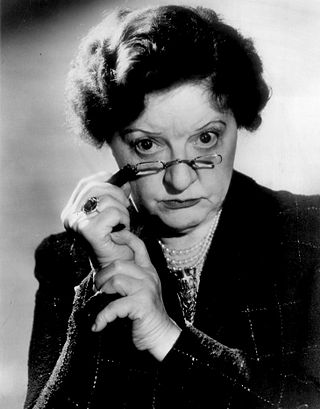
Marion Lorne MacDougal or MacDougall, known professionally as Marion Lorne, was an American actress on stage, film, and television. After a career in theatre in New York and London, Lorne made her first film in 1951, and for the remainder of her life played small roles in films and television. Her recurring role as Aunt Clara in the comedy series Bewitched, between 1964 and her death in 1968, brought her widespread recognition, and she was posthumously awarded an Emmy Award for Outstanding Supporting Actress in a Comedy Series.
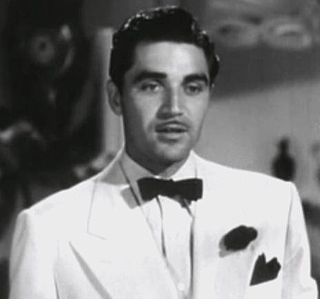
Steve Cochran was an American film, television and stage actor. He attended the University of Wyoming. After a stint working as a cowboy, Cochran developed his acting skills in local theatre and gradually progressed to Broadway, film and television.

Francis Loftus Sullivan was an English film and stage actor.
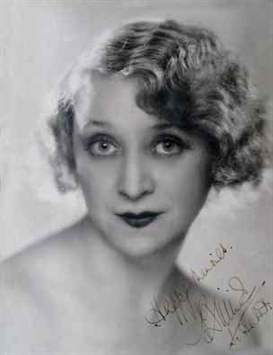
Beatrice "Binnie" Mary Hale-Monro was an English actress, singer and dancer. She was one of the most successful musical theatre stars in London in the 1920s and 1930s, able to sing leading roles in operetta as well as musicals, and she was popular as a principal boy in pantomime. Her best-remembered roles were in the musicals No, No, Nanette (1925) and Mr. Cinders (1929), in which she sang "Spread a Little Happiness".
Kelville Ernest Irving was an English music director, conductor and composer, primarily remembered as a theatre musician in London between the wars, and for his key contributions to British film music as music director at Ealing Studios from the 1930s to the 1950s.

Herbert Sydney Wilcox CBE was a British film producer and director.
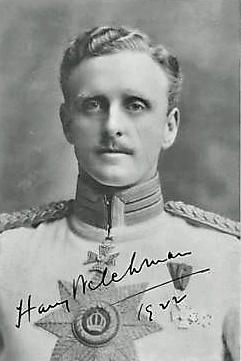
Harry Welchman was an English star of musical theatre. He made several appearances in non-musical plays, but was remembered as, in the words of The Times, "perhaps the most popular musical comedy hero on the London stage in the years between the wars."
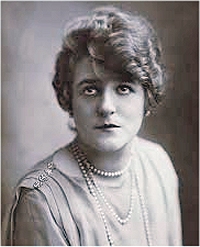
Alice Henriette Lapize, better known by her stage name, Alice Delysia and sometimes Elise Delisia, was a French actress and singer who made her career in English musical theatre. After performing in the chorus at the Moulin Rouge and other theatres in Paris from the age of 14, she became a chorus girl in Edwardian musical comedies, briefly on Broadway in 1905, then in London for several years and back in Paris in 1912.

















